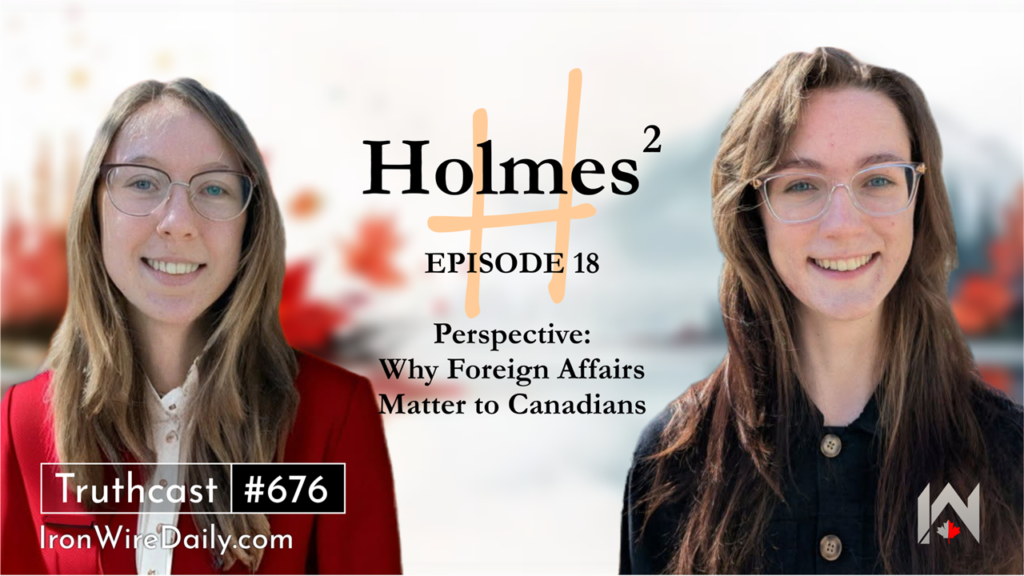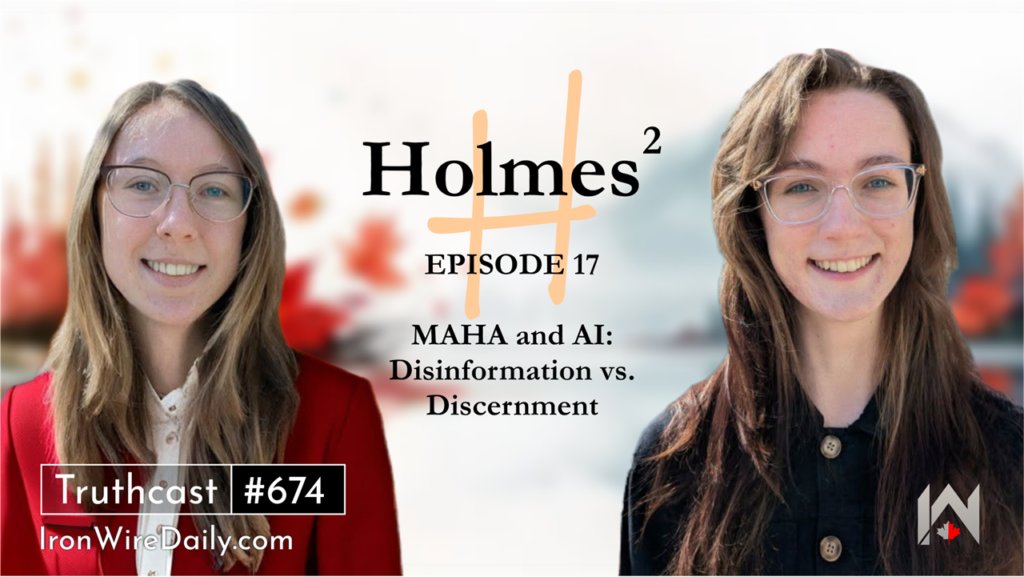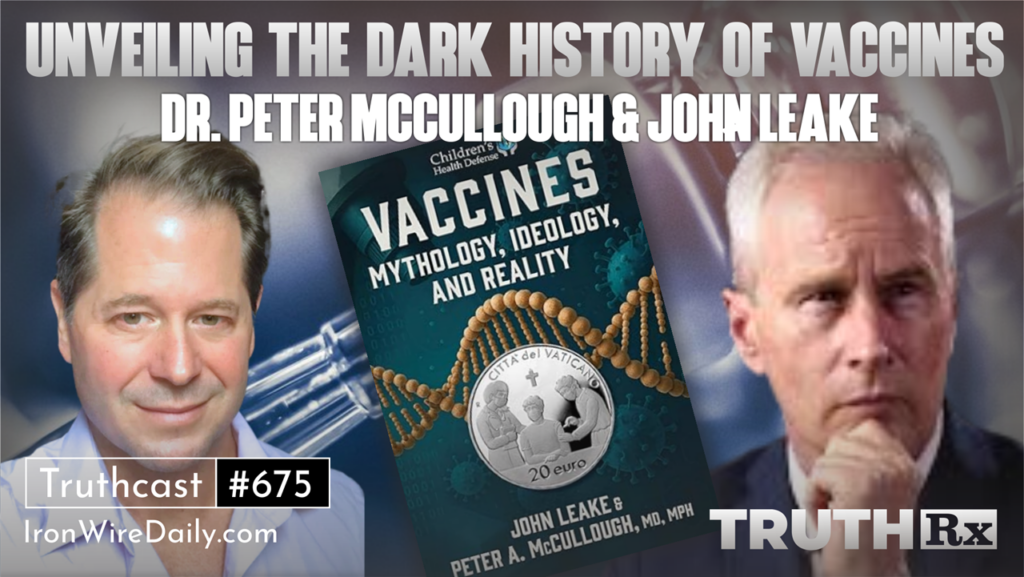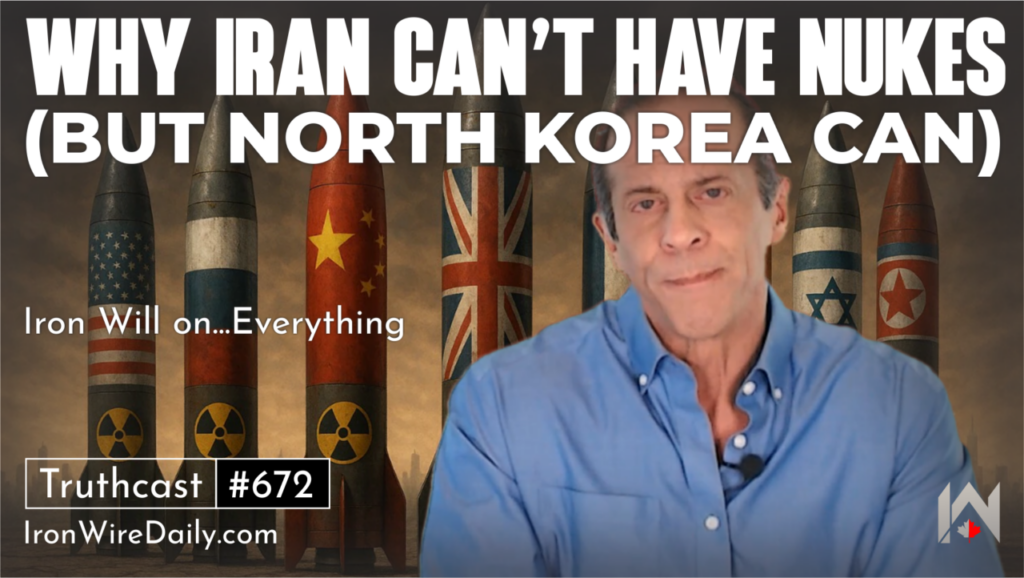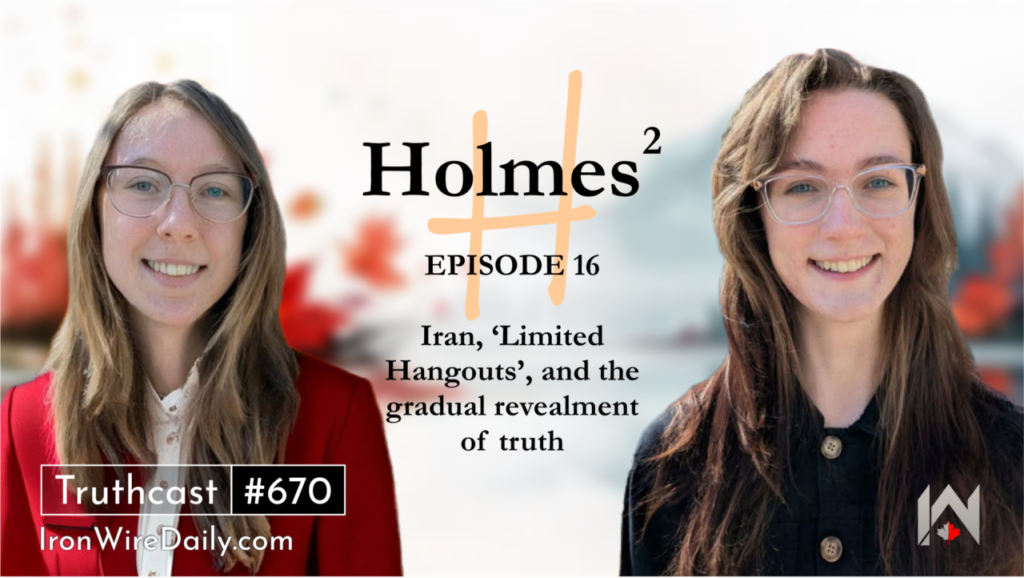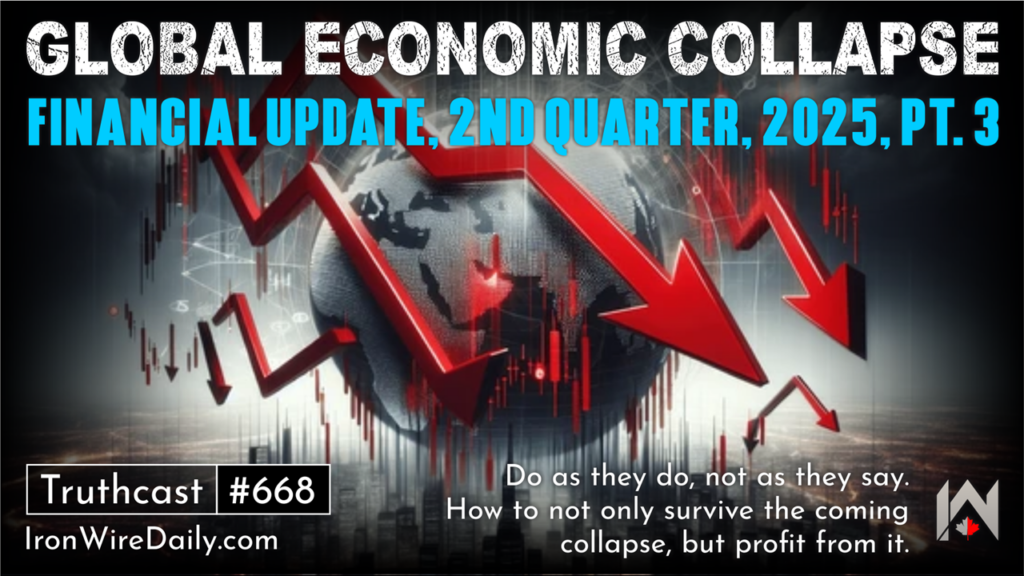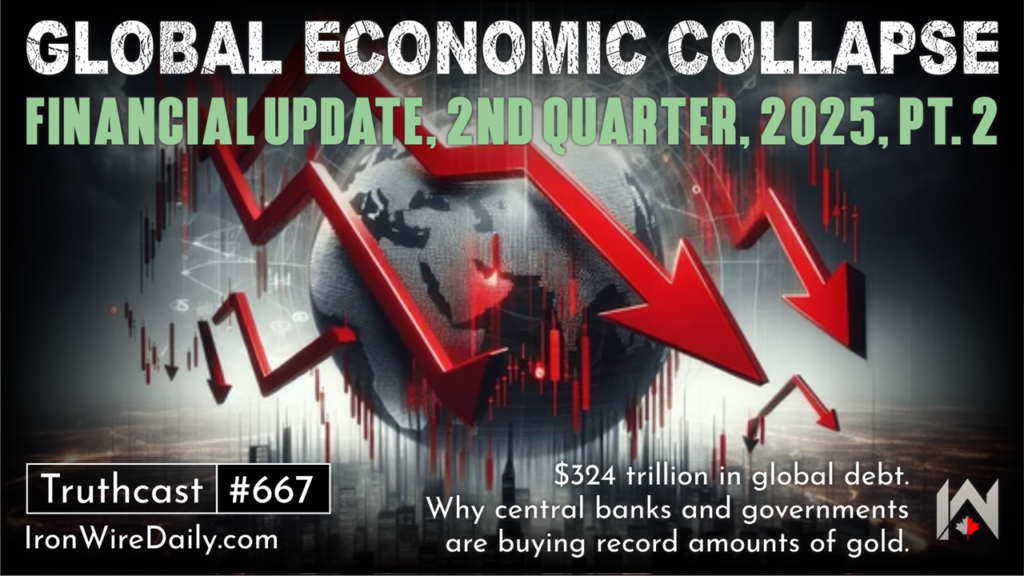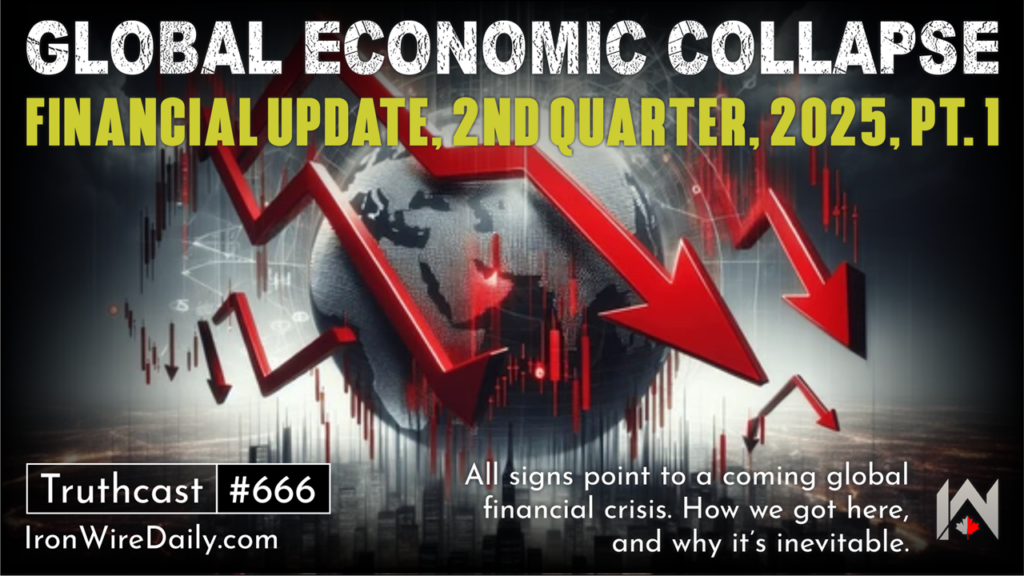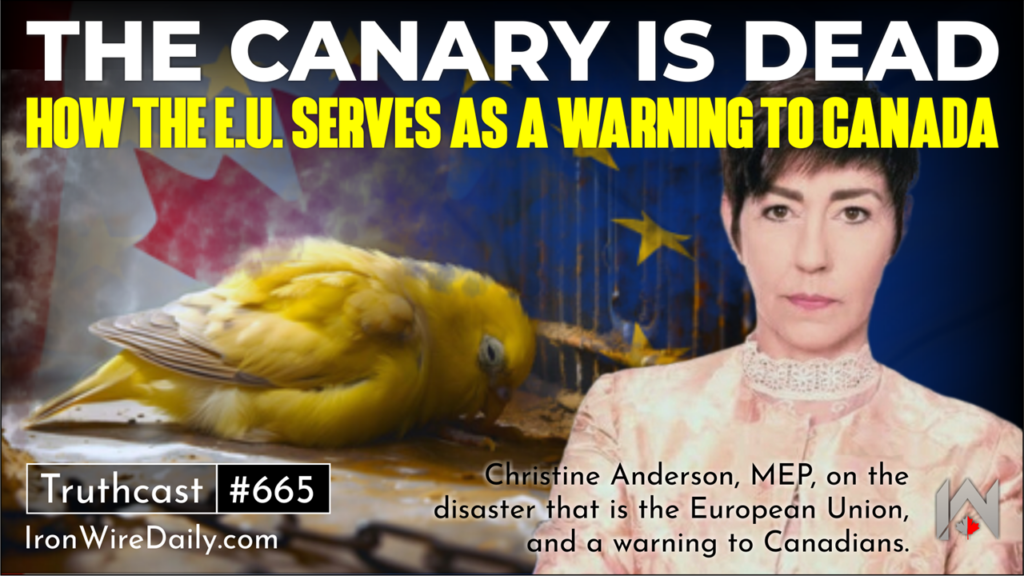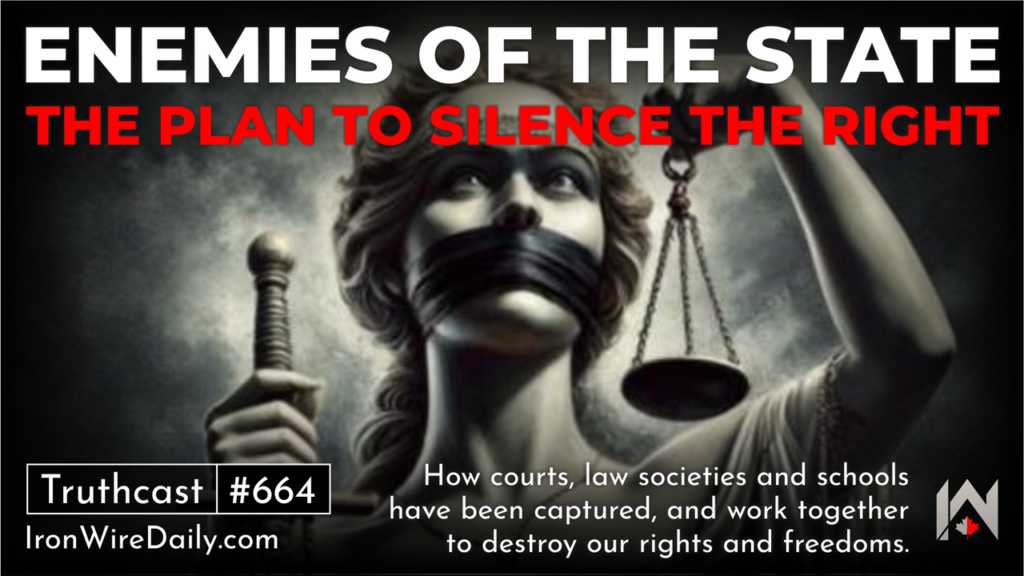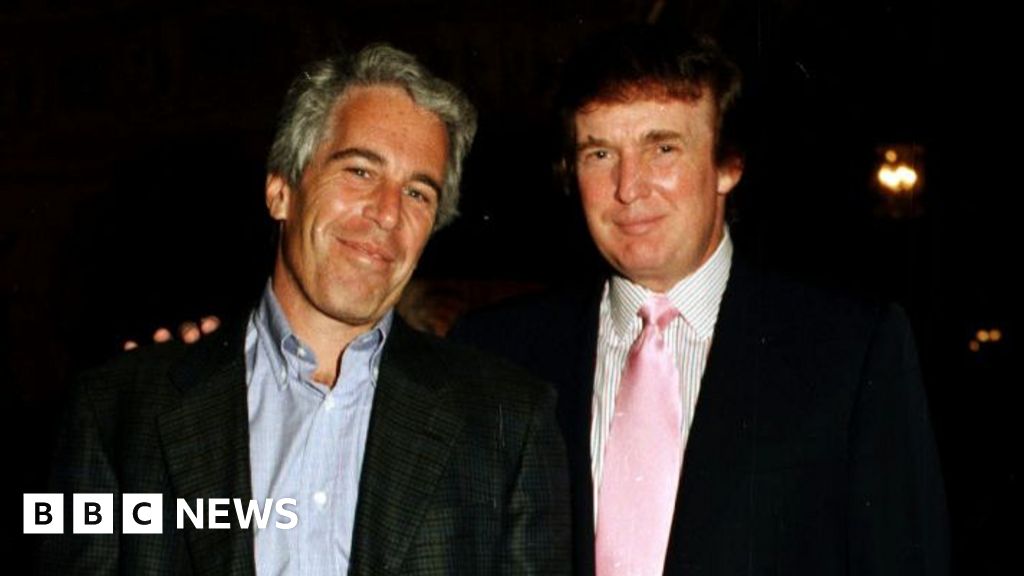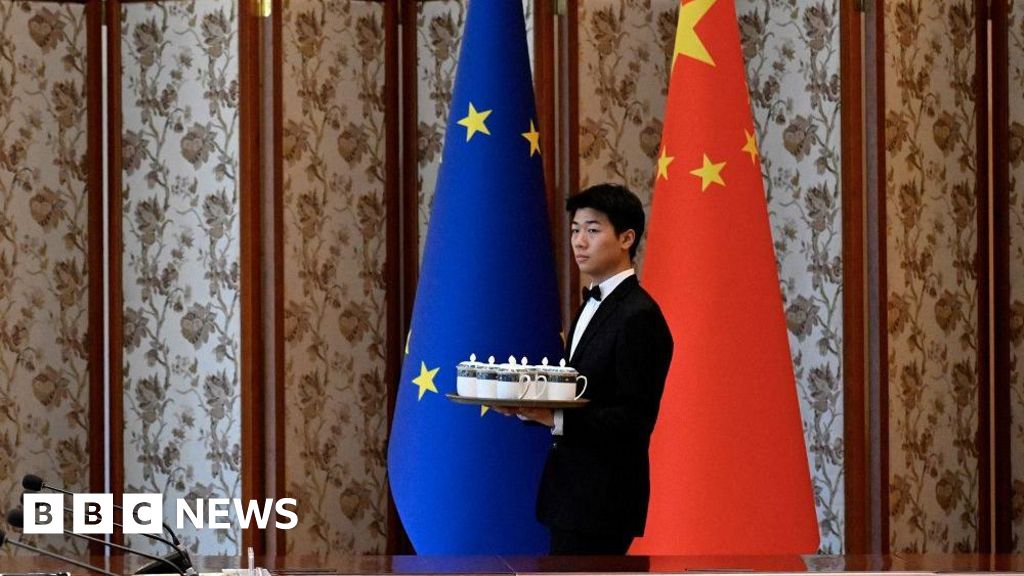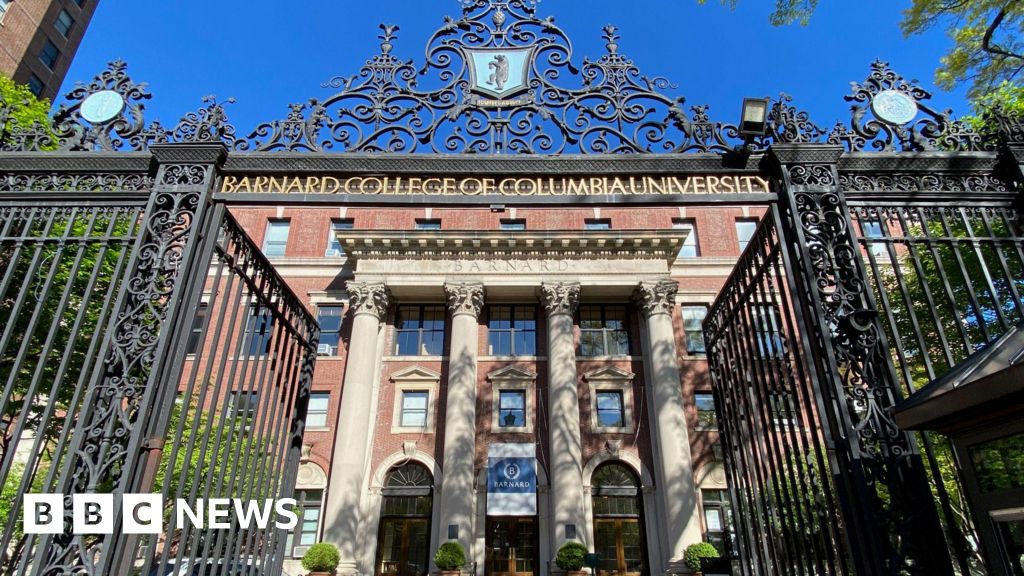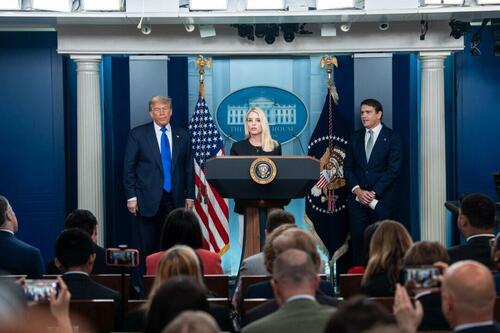Episode 10: “Mis, Dis, and Mal”
Madison and Maycee Holmes
Want more Holmes?
Find them on Substack, Rumble and Youtube
You can also contact the Holmes sisters directly at Connect@at-home-with-holmes.com
(0:01 - 0:06) Hi everybody, I'm Madison Holmes. And I'm Maycee Holmes. And you're watching Holmes Squared. (0:07 - 6:11) All right. All right. All right, all right, all right. All right, so let's dive into this. Today we wanted to talk about mis, dis, and mal-information. And Maddie, I think that we should start off with why this was a topic that we wanted to dive into today. Yes, actually, this is technically a topic that you wanted to dive into. I had- It was? Well, it was. I'm like, it was? It was. We were talking- Don't forget to share your screen. Yes, I'm on my way. I'm on my way to misery and happiness today. Wow. So this is a- So in Calgary, we have, you know, Alberta, we have a bunch of connected groups that try and stay up to date with one another. So I'm on a lot of different emailing lists to keep you up to date on what's going in your local area. And so in one of the emails, I got a notification that City of Calgary is trying to do an approval for a Ministry of Truth. And that's not an exaggeration. This is the Notice of Motion, Item 8.2.5, and it's combating misinformation, disinformation, and mal-information in local government. So it goes over the need to protect well-informed democratic decision-making at the local level is paramount to ensuring the City of Calgary is a leading municipality, protecting itself from the growing threat of mischief and mal-information has on our local democracy and decision-making processes. So in and of itself, I found that hilarious because the City of Calgary, which we all know how corporations works, like most of our cities and countries are corporations, because that's just how people manage their finances nowadays, and whatever nefarious reasons, because then you're also less liable. They can't sue you as an individual. They can only sue the entity. But so the City of Calgary needs to protect itself from the mischief and mal-that can occur in the democratic decisions. I know that whole sentence is a contradiction. Exactly. Exactly. I was like, ah, yes, we need to protect ourselves from democracy. But no, no, no. But it's funny because it says like the City Council needs to protect itself. The City of Calgary. Yeah, yeah. In its essence. Yeah. But so I was telling Maycee this because I read through the whole motion and it hasn't, the motion passed and is going to be for debate on the 27th, which is tomorrow, which this will come out Wednesday or something. But anyhow, I was reading it to Maycee and then you're the one who said we should talk about this on our thing. And that was only just the beginning. It was just the start. First of all, mis, dis, and mal, is like, oh, my God, there's three terms. I thought it was just misinformation because that's the one everybody talks. Yeah, I think it was important to talk about because I know that that's a bit more of like Calgary politics and all that. But like we are in Alberta right now, which is trying to be a main central freedom hub, if you will, for trying to get shit done. But the rest of Canada suffers tremendously from policies and actions like this. So the fact that it's even happening here, we're like, wow, we still have a huge fight ahead of us. And I can't even imagine what it's like being like in Ontario or Quebec having to deal with something like that. Right. If you think it's great and we're Alberta Freedom Central, it's like, OK. Yeah. What about the more dystopic countries and totalitarian provinces within Canada? Even regardless of the more dystopic totalitarian provinces is the fact that, hey, guys, look, our city council is passing motions like this. And this is why we tried our Calgary came up with a the A Better Calgary Party, which is one of the first municipal parties in Calgary's history at the first party in Calgary's history. If you want to learn more about that, you actually can check out our @HomeWithHolmes substack because we have done a couple of videos with Roy, who's the CEO of ABC and also Kerry George, who's in charge of communications. But yeah, yeah. But the point of that and it applies to all of Canada don't think this is another like, oh, we're talking more about their local thing, which this is something it's. If that was the argument, I'm sorry, if that was the argument, my brain would be immediately like, where do you start if not on the local level? Right. All you have to do is mirror us. We're doing it here. You can. And this is why I wanted to bring this up is because we're not the only one with councillors. You know, we have city councillors in Calgary, but you guys have provincial politics and you guys got city councils as well. And that there's this initiative, actually, that we found out about recently. So looking into city council, it's like, why? Why are these people passing this? Well, it turns out ours, not just ours as in Canada, but Canada's city councils have been co-opted for a long time. And me and Maycee learned this from a group called KICLEI. Maggie Braun is one of the leaders of it. And I had it pulled up here. But this, this KICLEI is it's to kick, yeah, Kicking International Council Out of Local Environmental Initiatives, because the a lot I think it's I have the numbers here. It's been written down. 522 municipalities across Canada signed up for this KICLEI Initiative. And what this KICLEI Initiative is, is the partners. (6:12 - 6:20) ICLEI versus KICLEI? Is this what you're trying to differentiate? Or? Yeah, well, KICLEI is trying to kick out ICLEI. I was like, I don't want people to get confused. (6:20 - 8:12) No, no. Yeah, that's the play on words. It's ICLEI is International Council out of, International Council of Local Environmental Initiative. And KICLEI is trying to kick that out. So these guys are actually touring across Canada, trying to get people to understand their local city councils have been co opted. Because Oh, again, 522 municipalities across Canada. So and you can come to KICLEI, you can actually come to their website and figure out if your municipality, your city has signed up to this, this new climate like agenda, again, Partners for Climate Protection Program. This is it. It's a acronym PCP. But it's it's the Federation of Canadian Municipalities. This is a whole initiative. And I only just learned about this. But this has been going on since like the 90s. So and their initiatives fit the WEF climate global agenda. So and that's right in our backyard, you know, we talking, let alone Alberta, this is Calgary, like our city, it's right here. And there's 522 municipalities, it's likely yours could be one of them that signed up for this whole ICLEI Partners for Climate Protection Program initiative. So that's something that you can look into, to understand better. But so just looking and knowing our own city politics, we were like, look, despite all of the work we're doing, we got it, we got to get local people now in to councillor positions, because we have a council right now, including our mayor, who voted this motion of mistus and mouth through. (8:12 - 9:25) So that's, that's a problem. Well, yeah, because then the leads to the question of like, who the heck is defining what is miss dis and malinformation? And so that that leads us to actually, that's, that's a good question. Yeah. And they, they do it in the document. But where did the document get it from? So right here, we can, we can literally just summarize this, because we know the difference, but they get their definition, if you go and look at the footnotes from the Canadian Center for cybersecurity, and the US gets theirs from their United States cybersecurity. And that's, again, the Department of Homeland Security. And so when it's just this big, overarching puppet tree master, it's like, we will define the terms. Well, yeah, it just plays into the idea of just trying to replace, what is that that quote where it's like, if you try to replace freedom for security, you deserve neither. Oh, yeah, yeah. (9:25 - 10:33) But that's essentially what it reminds me of. I mean, so Go ahead and define them if you want to. Okay, well, me and Maddie were... Okay, I'll talk about that after I define them. So misinformation is basically just you didn't know. Ignorance. You just didn't have, you weren't misinformed. You didn't have all of the information. So that's it. Malinformation is, although it may be true, it's taken out of context to cause harm. And then disinformation is, it is absolutely not true whatsoever. And it causes harm. A great example of that, that everybody will be aware of is vaccines are safe and effective. Absolutely not true. And definitely causes harm. Oh, yeah. So that's, yeah, that line is disinformation at its finest. And then misinformation, false information that is not intended to cause harm would be porcupines can't climb trees. They actually can. (10:33 - 10:51) There are some species of porcupines, surprisingly, that can climb trees. But see, that statement isn't really going to harm anybody. So it's not intended to come to harm. I just casually spread misinformation. And even though it says not intended to cause harm, it could. Right? It's like, That's true. (10:51 - 23:17) You could be misinformed on something, and then you're just, you're spreading it out, going like, this is spreading it out as truth. And then, or as your, I guess, really well confirmed theory, but it can still cause harm, depending on what it is. But this is like, this is a line of thinking. Line, definitely a line of thinking. Ridiculous reductionistic line of thinking that these people in our city council and these oligarchical types that are wanting their cybersecurity and just their mind security overall are thinking it's like, well, it could cause harm and all this fun just and so that's where me and Maddie, we were talking about it. It's like, I have information that I've learned that I would be like, I would very much prefer if individuals didn't, for instance, think that like, aliens built the pyramids, like that's just something where so I would be like, I feel like they're, they're misinformed. And I feel like that's not necessarily going to cause harm, potentially physically, but it might cause a bit of some mental dehumanizing harm. Um, but so already you're, we're, we're going down that line of thought. Right. But it's like you and I, as we were having this conversation, it was like, no matter what, though, you're going to have a type of misinformation within your skull. Like you can never be 100% aware of what's going on at all times. It's not like you have one mountain peak where you can just see everything and you have a view from everywhere because then as we were saying, and I think the one with Matthew it equates to the view from nowhere. It's like you are never not in the middle of something, never not standing in the middle of knowledge. It's like in traffic, it's like you are a part of traffic. Right. Right. Yes. That's, yeah, that makes sense because when we were talking about mis, dis, and mal, people, every, everybody watching Will's program and the Iron Wire Daily will have, you know, you hear the terms mis, dis, mal information and immediately we get the like, gross. And fair enough because, well, yeah, it's a censorship bill. And I thought, what is actually wrong with this bill and this motion that's being passed and has been passed in other provinces, other countries, the one that they're, I think it's, what is it? C56 is trying to pass right now or 60 something, again, another censorship bill on federal basis. What's the problem with this? And it's the fact that what you just said, you can't get rid of it. So you can't get rid of ignorance because there's a lot of knowledge out there. So, and always being in the pursuit of something because we're not all knowing godly beings. We are pursuing being all knowing godly beings. There will always be this, we will always be, like you said, partly misinformed. And especially with mal information being, you have the correct information, but out of context, which Matthew made that statement on our last episode, for those who haven't seen it, he alluded to scientists that had the same scientific information, but came to different conclusions because of gun. And that's, that's what we call the mode of attention, the context of which you were looking at the world. They had different modes of attention, different goals in mind. And so that's the nature of misinformation and mal information is also partly just human nature, because we are limited and we're in a process and processes are never certain, static, fixed, entirely complete, they're being built upon. And that being the case, I thought it makes perfect sense why a bureaucratic oligarch would be trying to pass a guideline or motion as if these things as if knowledge was something you could control. Alas, it's not. And so then me and Macy were thinking, okay, well, this being the case, if you can't get rid of misinformation, disinformation, and mal information, what do you do when it inevitably comes upon you? Because it will inevitably if you haven't, if you haven't accidentally done it yourself, which is, everybody technically has, again, spread a little bit of misinformation, because we don't have all the information, or we've spread mal information, because we had some knowledge, but we didn't have the right context. So we put out a theory, what do you think a theory is? It's incomplete information. So wait, tiny little add into that is like, most people, like, ever since COVID happened, people have been taking a look at what is proper science then, right? Because they were going like, trust the experts and follow the science. And people were asking the question, well, what the heck is the science? What is that? What is the method of following the science, right? And then they started asking, that's a great question. And what they discovered was that it's like, when you have a theory, more often than not, a good scientist kind of goes out of their way to disprove their own theory, in the sense of like, they asked the question, what do I have to be, I guess, ignoring in order for this to be true? Because they're searching for that thing that they are ignoring, in order for their theory to hold ground, because they want to, well, I guess, expand upon it, or they want to kick it out entirely and maybe create something a bit better, which I actually would say this may or may not just be another form of expansion. It's like, that was just a thing to add to your little tangent that you were going on. That's the point, you just kind of, you did it. It's like, the scientific process disproved, what do I need to believe for this to be the case? And those are questions. It's like, if we all accept, and you brought that up when we were talking about what to talk about, you and I were gardening, and you brought up something that I told you a long time ago, which is I always make the assumption that I'm partly wrong, or that I'm missing information. I just assume that I'm a little bit wrong all the time, because then it helps me change my axioms more. Yeah, this goes back into what I was talking about, where it's like, you're never not in the middle of something. So we were kind of going down the mysticism malinformation path, and we came across, our dad was recommending that we check out this podcast by, is it Dr. Henry Ealy? Is that his name, if I'm not mistaken? Yeah. And he was talking about the whole MAHA movement, and he was talking about what's going on with Robert F. Kennedy Jr. Man, he's got it pulled up there, the man in the sunglasses and the headband. Yeah, this is- The doctor who's helping Maddie de Garay from her vaccine injury. Yeah, and you'll see below that there's Dr. Mary Talley Bowden as well there, and they were talking about how they're asking good questions. When I first listened to these podcasts, at first I was like, the way he was telling his story, to me, I was like, it's odd, because all this information's out, so I don't understand what he's talking about. I don't understand why he's getting upset, because I'm like, but this information is out, so what is he accusing them that they are not doing, right? But then he was asking good questions in the sense where it's like, right now what we see is the vaccines for the US, and obviously it'd be lovely if Canada would do this as well, but for the US terms, the vaccines aren't off the schedule, and they're not being banned out of oblivion, and they were asking those good questions because they were like, so we're focusing on food dyes, which is fine, and like cornflake cereal. Yeah, they're referring to RFK, you know, Robert F. Kennedy Jr. got in as the HHS, and everybody was happy, and expecting him to immediately take the jabs off the market, and only recently have they recommended that you don't take it for certain age groups, not even for everybody, but they said we recommend not taking it for certain age groups, but that isn't banning it, and that isn't saying it's outright harmful for everybody. Yeah, because to them, they were like, if you have the information, which Robert F. Kennedy with the Children's Health Defense, they did, weren't they the ones that did all of the VAX documentaries about the harmful injuries that are happening, and so Ealy was just kind of going like, and Mary as well, they were like, there are people that are injured, there you go, there you go, there are people that are injured that are potentially like down the line, the people who are still deciding to take these shots, they may or may not be experiencing injury as well, and so it's like, and there's people dying, and so any other product on the market that is behaving like this would have been banned like a couple years ago, so what's going on, and we're targeting food products, which yeah, okay, but that's in Dr. Ealy's own terms, he said that's not even in the top 10 list of things that are a priority to actually be dealing with, and so when I was listening to that, I was like, that is, that's a good example of trying to target that idea of standing in the middle, because it's like, even he himself was saying that it's like, I believe that Robert F. Kennedy is a good man, it's just I really don't understand what's got, what's basically got him by the balls, so to speak, as to why he's not taking action on this, and even some of the bills that haven't been repealed, where it's like pharmaceutical agents not actually having to be liable for the products they produce, he's like, why in the heck are we not coming out of the gate, like we've, we're so long into this administration, or as you, as the head of this department of the administration, and you only have so much time to do this, this is your light to shine, and it's not being done, and even if there's tiny little things that are happening, it's like, are you just trying to save face, is this just smoke and mirrors, or are you actually going to fight? Yes, yeah, and you know, it's not just R.F.K. Jr., they were also broadly looking, especially in the Mary Bowden interview, and for those who want to look, this is, these interviews, this one, and this one, they are on coffee and a mic. It's a good show. Yeah, yeah, it's, I love the name, because I thought if our dad ever had a show, that's not what I thought. It should have been called coffee and a mic, but they were also talking about the overall Trump administration, because this is, you know, everybody loved that R.F.K. Jr. and Trump partnered up, but then you also look at, okay, the Surgeon General, I believe her name's Casey Means, or something like that, and again, they were looking at, of all the people that are better qualified, have experience, you pick these people, and again, they're talking about things that we already know, like diet choices and stuff like that. Not to say that people shouldn't be hearing these things, but again, out of all the things out there, this is really downstream. (23:17 - 24:18) We should be biting the big stuff in the butt, and then you can go for the easy pickings afterwards. So there's, they were calling out even the other administrative positions that, you know, Trump and R.F.K. Jr. both put in to this new MAHA movement, and how it's really, it's not the people that you thought should be in that were kind of common sense picks. I think even Mary talked about how the other one, I think her name was Victoria, the other potential candidate, she had been a potential candidate for a bit, and he had told her, yeah, I'm going to go with you, and then yet again, did a swap around. So it's just stuff that- Lied to her and didn't put her in. Yes, so, and that's why also another example that you and I did while we were gardening that we wanted to bring up was the Golden Dome aspect. So I'll pull up that. (24:18 - 25:26) Yeah, this is a good podcast. We absolutely, you all know we love Matthew Ehret, so he was on Breaking History with his lovely counterpart, Gordon, and they did an episode on the Golden Dome, and it says psyops and geopolitics ticks down there, and you can check it out on Matthew's Rumble, Matt Ehret right there. But yeah, that was something else that was, we need to keep our heads on a swivel, because it's like, oh yeah, this plays also into the podcast as well, if you wanted to bring this up just back to back. We also listened on the Tommy podcast to an episode on the Pilgrim Society. Did you share the screen for that? Yeah. Yeah, okay. On the Pilgrim Society with William Ramsey. And yeah, this is the Tommy's podcast is what it looks like. It's also a good podcast, but so how those two kind of play together is, in a sense, is like the Golden Dome, I'm trepidatious about in the podcast, Matthew and Gordon do a bit more of a better job kind of saying what their own personal reasons for why they're trepidatious. (25:26 - 30:51) And in the Tommy podcast, he was saying that it's like, he's like, great, I either have the choice between space fascism, or gay communism. And how he was describing it is he was like, well, what if and he said, I'd like to believe that Trump is a well intentioned character, just like how I'd like to believe that JFK was a well intentioned individual, good character, we call them good actors. And then we call bad guys, bad actors. But he said, what if, though, that what they're doing is they're kind of making you feel like they're giving you the secret knowledge, where it's like, here you go, this is what's wrong with the system. And we got to break it and blah, and so we're going to do these things. But then it's almost so that they can just pull a reverse and be basically be king of the hill. It's like a game of, of that you got to build the allies to push you up. And then you're like, whoa, now I'm on top. Right? And so that was his question. He was like, that makes me a little bit trepidatious. Because it's like he said, more often than not, JFK came from a deep state family. If I'm not mistaken, was his father a part of the Pilgrim Society? Oh, I don't know. I don't know. It's in that podcast. They do say where his father came from. But and then same thing with Trump. It's like you like at the top echelon. So just hanging out with all these nasty figures. And it's like, he's like, these people come from that. So and then all of a sudden, they're, it's either maybe they grew a conscience and like guilty conscience, and they want to do something about it. Or it's one of those, are they just doing the thing where they need to build the rapport enough so that way later on, they can cash in their check, right? For their own potential American global hegemony. And of course, like, these are not things where it's like, yeah, that's, that's not what I'm saying right now. But what I am saying is that that's what we mean by you're never not in the middle of something. So with this Golden Dome concept, it's like, okay, so we're building up Fortress America for what exactly? Because the question is, is again, like, what do we have to be ignoring in order for this to be true in order for this to be something that is beneficial, a good thing, right? And some of the questions that are posed are in the podcast episodes that we recommend that you go and watch and check out for yourself. But a lot of the times, like, even the idea of like, we need to build up Fortress America, because we have foreign enemies, like Russia and China and Iran that are gonna and that are gonna try and, you know, create nuclear wars, we got built up this Golden Dome, right? It's like, is that true? Yeah, like, and a lot. That's why we're playing with this concept of mischief and malinformation, right? Because it's like, with the whole idea of like, I guess, for my best example that I can think of with the whole idea of like China, for instance, when I like, they're responsible for the fentanyl crisis, because maybe what we did to them back in the day with the opium wars, maybe with the one century of humiliation, right? It's like, so they, they're trying to embark revenge on us. And it's a revengeous thing. And so now they've infiltrated us because of what we did to them. And how dare they and like, my brain goes, like, so we do something terrible, like cause an opium war in China, and then take over their port so that they that way, we manipulated their trade. And then that tanked their economy, century of humiliation. So justifiably, I feel like you'd have a good reason actually to want to spark revenge. But if we are playing with the concept, so let's say that that's the information right now we're standing on that one. And we're saying this is the case, right? It's like, what are you going to do with that information? Either what you can do is you can say, what do I have to be ignoring in order for this to be true? Are they actually doing a type of revengeous thing? Or is it something else? Right? And then you go and you look into the sources that have been maybe suggesting otherwise, or, okay, let's say, because again, we're never not standing in the middle of something. We're leaning towards that argument. So we're over on this side, right? Doing this thing. Well, then what are you going to do with that? Right? Are you going to spark revenge on them? Or are you going to do the very thing that you wish that they were doing, which is be the bigger person, extend your hand forward for cooperation, forgiveness, and then we can get to work, right? Because if we did that to them, and then you're saying that they're like, how dare they want to get revenge? Why can't they just be the bigger person? And why can't we just like move forward? And you know, like, that's not justifiable. And now you're saying that you want to go to war with them, or you want to go and spark revenge on them for them sparking revenge on you for the very thing that you did to them. That makes no sense. Like, to me, I'm like, unless you really love the story of the Hatfield and McCoy's and you just think that is the Hatfield and McCoy's is a very good example. Yes. Yes. For people that don't know that talk about family feud of never and in perpetuity. (30:51 - 32:23) Um, and that's one thing that it made. It was really funny when you first brought that up. You're like, okay, even if we believed that, okay, trying to be bad, and they're getting revenge on us, they're bringing fentanyl because we brought opium. Even if we believe that that's the case, which we don't, for many reasons, but if we did, if that's the case, and that's, this is what you believe, then we're just gonna do the same thing. We're just gonna bring more revenge. Well, that's like, what's your action? So what we mean is like, we're not trying to like spark heads right now. What we're trying to say, because we are downstream of this, we are involved in the culture movement. We have no reason as to why we want to stir heads. What it is, is mainly in the freedom movement. A lot of people in every podcast I listen to, they're always talking about how it's we can't get violent. We got to try and do this through the diplomatic way. We got to try and figure out how we can conquer this locally. We got to get together. We got to get our ideas stirring, and then we got to create action. We got to go. That's how we're going to win this, because there's two modes of attention. It's either, if we get violent, right, it's like, we don't want to because A, maybe you want to spite those bastards because you know it's what they're looking for. They want you to get violent. They want you to get reactionary, and you know that that can create divide and conquer strategies, and that is no bueno. Which is most often the case. Some people are like, oh, violence is necessary, and I'm not going to disagree with you, but you can't forget that they literally co-opt most violent movements. (32:23 - 32:40) You look at the French Revolution, the American Revolution, they even got their hands in on that. You look at the Civil War, they got their hands in on that. Almost every coup, most coups are done, again, via the Western intelligence agencies. (32:41 - 33:22) And maybe we could do a thing on color revolutions and another- Operation Gladio is a whole- Operation Gladio, yeah, that'd be a good one. But just remember that they do want to co-opt violence. But because we know that, or some of us do, but because some of us know that, that's why we're choosing not to be violent. We're like, we don't want to do that because of that context or because, again, to spite those bastards because they know that's what they're going to do. But it plays into another concept, which is because of the community. It's like, maybe we're also trying to do this thing because they're both kind of meshed and mingled together, those two reasons, that reason where it's like despite, but also the reason because of the context and the community, and we're trying to figure out. (33:22 - 37:51) Because when you do that, it's actually harder, but it's valuable because my parents, in the sense of me and Maddie, are downstream of our parents trying to get involved. They're trying to figure it out. And then we get to learn how to figure out alongside them and we get to figure it out for ourselves. And then consequently, that might get passed down to our children. And so now instead of the story that you're teaching through time is violence is the answer. It's no, hard work, education, getting involved, that's the answer. So when we're talking about that idea of what is your action, and we're talking about it in the context of China, for instance, it's like, well, if we're going to say that we hold the value that we do to not get violent because of all of the hard work and the reasons that we've said as such, then why are we not applying that same local level reasoning to a bit more of the global idea of like, well, then how do we want to demonstrate ourselves as people and as a country to our fellow- To avoid more violence and more- To avoid more violence and revengeous mentality without like, again, so- That's why the whole Golden Dome- If you're lacking context, right? Sorry, go ahead. Well, that's why the whole Golden Dome thing was a really good example alongside all of this China talk is because the mode of attention that they're saying this needs to be built is to defend ourselves. Defend ourselves from what? And so if we're trying to build, like you said, this mentality of not going to war, not being violent, not being provocative, which is more than often than not the actual way it goes. If we're trying to change things, you don't put up a giant dome, which you could flip and turn around on the rest of the world anytime. Yeah, that could become offensive. It could. And we're not saying it is, but it's something you've got to consider. It could be. And that's the whole point of this whole mis, dis, and malinformation is the fact that, again, if you're always going to be missing some- If misinformation and malinformation and disinformation are never going to go away, which they aren't, as so long as, you know, human nature exists, then what are you going to do when it comes across your plate? You have to ask questions and you have to discern forever and always. And that's hard because, like Macy said, we have this proclivity because of our left hemisphere. We want to pick sides because it's more certain, it's more comfortable. When we were watching, you know, the podcast with Dr. Henry Ealy, and he's calling out the RFK Jr's, this Children's Health Defense. He even said something about the Daily Wire not giving the support that he should have. And we love the Daily Wire. So when we hear things like that, even because we all have left hemispheres, I get that jerk feeling and that uncomfortable, oh no, has something I've believed in this whole time been wrong? And that's an uncomfortable feeling. But that should be a normal feeling, in all honesty, because the reality is, yes, most of the time- You're lacking context. We're lacking context. We're lacking information. You're misinformed. We're misinformed. We are. I don't have all the answers. We're totally misinformed. I don't have all- And I think that that's one last thing that I kind of wanted to add. There might be two things, but one thing I definitely wanted to add was, I don't know where it was in maybe McGilchrist's work when we were in the Master and his Emissary. It might've been even just a lecture he was talking about. But it was an example. Oh no, I think it was Matter With Things, his newest volumes. But it was the idea where it's like, if you got a class of students that are being asked about a question and it's like, you have so many chickens and so many ranchers, how many cookies are there? Right? Some of the students were like, oh yeah, I'll answer the question based on filling in the blanks because he was applying it to the left hemisphere. But for now, the overall gestalt, I'll just give the example for its own sake. But there was a couple of students as well that were like, I need more context. I can't answer. Right? And I feel like we need to learn from that kid. (37:51 - 38:07) I know. What does cookies have to do with chicken and ranchers? Exactly. Instead of trying to fill in the blanks with whatever information that you feel that you have and you're just pulling it out of your ass, like, sorry, that's not the proper way. (38:07 - 38:32) You probably should be asking, where did cookies come from? It's like, I need more context. And I feel like, hence why you're never not in the middle of something. You're never not misinformed. But that's not a bad thing. It just is. It just is. So you're responsible for how it is that you choose to respond to that proactively. So you have to go like, hmm, maybe I am missing chances are I probably am. And it's like, okay, so then I'm standing in the middle of something. (38:32 - 38:58) I can either choose to ask, what am I ignoring in order for this to be true? Or if I'm and not or actually, and as I ask that question, regardless of where it is that I'm leaning, I should probably figure out, well, what do I want to do about it? Right? And then why do I want to do that? Right? And then you start asking more and more questions. And that gets you deeper and deeper into more of context. And then you can start figuring out where those damn cookies came from. (39:00 - 39:03) Absolutely. Yeah. I mean, we've gone on for a bit long. (39:04 - 40:10) You know, that was that was a good way to, unless you have any extra. I'd say that the last thing I really kind of wanted to touch on, and I don't want to make it too too long was also like, when it comes to I was thinking about this. And it was like, when it comes to the idea of like, the whole critiquing the Chinese Communist Party, for example, right, and the entire governmental entity, I just wanted people to remember that it's like, there are provinces, even within Canada, that are fighting each other in the sense of like, not like fighting each other, but they have oligarchical forces like as to come full circle with this whole, we need a ministry of truth or whatever, right? It's like, that we, as little freedom fighters are trying to figure out how to conquer that, right? And Alberta, as we said, it's a bit more freedom central. Ontarians, they feel a bit more like they can barely even talk about the trucker convoy and not feel like they're going to get arrested. And whereas here in Alberta, that's not really much of a thing. We kind of don't care. (40:10 - 40:27) Um, so when I'm, when I'm, when I'm kind of bringing in that context, there's literally like 100 million people in the CCP party. And, uh, even in what's going on in Alberta, the UCP party, it's like, we got some grassroots people in there. We're trying to solve things. (40:27 - 41:07) We're trying to get things going and underway and in a good direction. And there's a split and there's a divide and there's a same thing with the premier. I'm sure there's a split and a divide. And so it's just like no different with like, that's a hundred million people. It's like, all of them are bad. All, all of them are bad. It's like, and then, then you start branching as well and go like, Oh, so maybe it's different in Hong Kong compared to like somewhere else. And so then, and then why is it different? And that's what you got to ask. It's like, maybe there's a different force in there that's going on. Maybe there's a different force in here that's going on. Maybe there's a split in consciousness. I just wanted to pull that up just so that people understand that things are more nuanced than just black and white thinking. (41:07 - 41:55) Oh yeah. No, that was the whole. Hence the whole standing in the middle. Hence the whole. Yeah. We literally just laid it out, spelled it in crayon. So. We did spell it in crayon. That was like, cause mystic and mal, it sounds like an, an, a very easy topic to just, everybody knows about miss, dis, and mal information, mis, dis, and mal information. But when you actually look into the nature of where they are and what they come from, the point of it, even that topic, it's not that simple. It's not mis, dis, and mal. It's not that simple because again, disinformation information intended to cause harm well, or to manipulate others, which can cause harm. That's the left hemisphere. And the left hemisphere has been around as long as people have been around. So unless you're going to get rid of the brain, you're never going to get rid of it. (41:55 - 42:12) Same with miss and mal information. So understanding that things are not that simple. You know, we just read, did a star Wars recap as a family and they talked about, only a Sith works in absolutes, which is an absolute in and of itself, which is hilarious. (42:15 - 44:46) But understanding that you can't look at most things dichotomously. It is not that simple. You got to, again, assume it sounds funny, but make the assumption that you're, you're missing something and that something's partly wrong and that you have to do more work, not violent work, but mental work. You have to do more mental pushups in order to understand it. Cause things are complicated. Life is complicated. That's, and so are people. So that was the whole, that was the whole of this episode on how to look at mis, dis, and mal, not just from the easy, Oh, it's censorship. It's bad. It's like, okay, let's look at the nature of where these things come from too. Cause it plays it on minor to our micro to macro levels. So, and then your own individual responsibility. Yeah. That's the most, yeah. That's the mode of attention. When we talk about left and right hemisphere, it's like when things get put on your plate and just like COVID, we didn't ask for COVID. We didn't, me and Maycee didn't ask to be born. Okay. So no one, no one really did. That's true. Nobody asked to be born, but now that you're here, you have a choice. What do you do with it? You didn't get to pick to be here, but now that you're here, you do have a choice. So it's like, okay, are you going to sit and do nothing? Are you going to get so overwhelmed by the fact that you, not a lot of things are absolutely certain in life. So great. If I'm always misinformed, then how do I make decisions? Are you going to get overwhelmed with the amount of uncertainty that there is out there and not make a decision? Or are you going to work with the information that you have, which is the more reasonable thing to do. We learned this from Gad Saad's work. He did a book called the consuming instinct, and he talked about even buying a car. You know, people think we're so rational. We're rational human beings. He's like, the rational thing to do when buying a car is to look at every single car possible in order to get the cheapest, the most efficient, the most. Yeah. Every world market, everybody would look at every world market. But what do we do? We work with the options that we have near us. That's what we do. Cause that's reasonable. We're not rational beings in nature. We're reasonable. We work with what we got. So take the information that goes on your plate and make the assumption that there's probably more information and keep pursuing. (44:47 - 45:43) And you can make a decision, but then also remember to embody that which you want to see embodied. It's like people want to see, it's like if a politician came out, maybe like a Trump or Robert F. Kennedy and actually was honest and said, guys, I'm surrounded by sharks. This is the, this is what's going on. I'm being honest. I'm sorry. Maybe even with Trump and his first administration going like, guys, I'm sorry. I was wrong. The vaccines aren't safe and effective. The data's come out. I changed my mind. Whatever happened to changing your mind? Like, well, we know actually the value, this whole community of people should damn well know the value of changing your mind, right? Based on presenting it with new information. So that's all. It's literally just remember to embody that thing, which you wish that politicians would even embody, because then maybe we'd have better politicians if we were all embodying it on the individual level. Amen. Okay. We should probably end it. Absolutely. All right. Well, thank you everybody for watching and Maddie, ready? This has been Holmes Squared.
